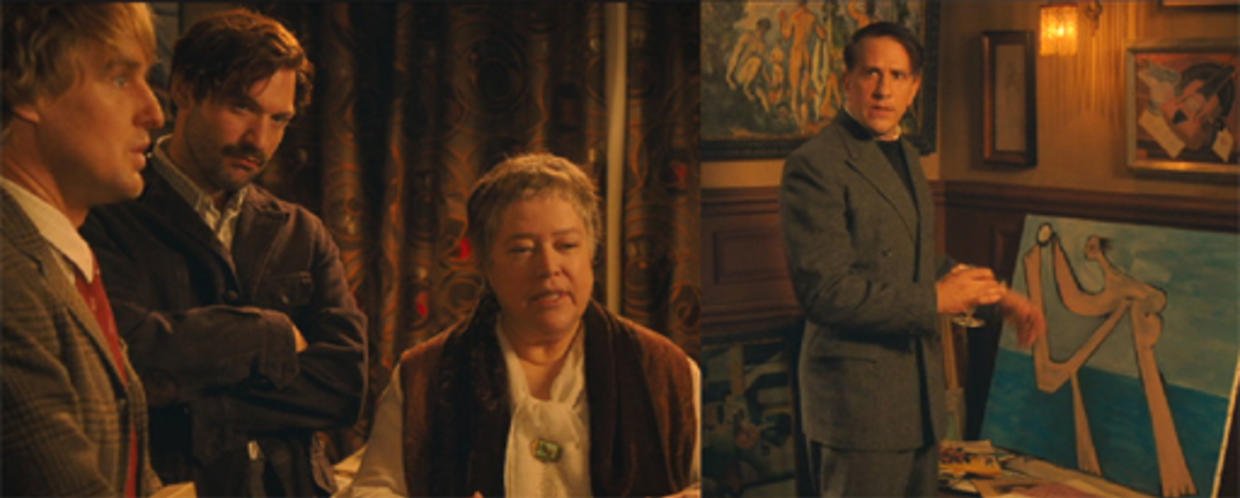This weekend I co-hosted an understated “hen do” afternoon tea for one of my dearest friends who is about to get married (congrats Kate Van Akin!). It was a delight to co-design the experience with another coach friend, Raluca Graebner, Ph.D., to make it tailored to what Kate wanted and who she is. We brought beauty into the space to soften the tone. We set a soft structure that interwove storytelling into the organic flow of conversation. We also led a ritual that celebrated Kate and sent her off feeling supported and loved.
It was a meaningful creative outlet and gave me that satisfaction of “making something out of nothing”. But it reinforced something I’ve been thinking about for a long time. That there is a big blindspot in our collective conversation about creativity.
We talk a lot about intellectual creativity - coming up with new and useful ideas, and a lot about artistic creativity - making unique and meaningful objects or performances. But creativity is not confined to ideas and art.
The truth is we can do anything in a creative way.
We can bring a creative approach to any domain of our lives: to our identity, our spirituality, our sexuality, our careers, our travels, our parenting. But the domain I want to focus on today is relational creativity.
There are three main ways that creativity shows up in the interpersonal domain.
First, we can create communities. It is magic to me how an array of separate individuals can cohere into a community. At coworking spaces community managers take on the role of building that intangible yet essential sense of community. My friend Matt Trinetti co-founded with Parul Bavishi the London Writers' Salon which has been a hugely valuable community for me personally. They’ve created an inclusive, supportive and inspiring environment for anyone who has something they want to write. I think it's easy to forget that every community that exists was created by someone.
Second, we can create experiences. Historically, an essential role for nurturing creativity was that of the salonnière - women who hosted carefully curated gatherings to exchange and cross-pollinate creative ideas.
Kathy Bates playing the famous salonnière Gertrude Stein hosting Hemmingway and Picasso, in the film Midnight in Paris .
In modern times, there are many professions where creating unique and meaningful experiences is an essential part of the work. I’m not just talking about wedding planners, festival organizers or restauranteurs. As a part of the Mobius community I have the privilege of apprenticing in the art of facilitation from some of the best like Erica Ariel Fox, Mark Thornton, Mieke Jacobs, Andrea Winter and Gary Joplin who designed and delivered a creative, emergent and transformational leadership experience in Portugal I was a part of earlier this summer. During my PhD I saw professors like Dan Cable and Herminia Ibarra create transformational learning experiences in the classroom.
But we don’t need to be professional experience designers. Priya Parker’s book The Art of Gathering is full of ways we can make our everyday dinner parties, work meetings or community events into something truly creative, unique and meaningful.
Finally, we can create connection. Rather than stay stuck on autopilot, we can bring a creative approach to how we interact with everyone from strangers to spouses. My friend, Georgie Nightingall does amazing work helping people to escape small talk and have more creative conversations. In my TEDx talk, I argue that if we can bring a creative mindset with a bit more curiosity, appreciation, vulnerability and engagement, we can create that very intangible yet very real thing we all crave called “connection”.
As a final inspiration, I recently came across something called Street Wisdom, which integrates all three forms of relational creativity. Founder, David Pearl designed a creative experience, a delightfully simple practice that essentially involves taking your intuition for a walk. But more than that, he created volunteer-led events designed to foster connection between strangers engaging in a shared activity. He could have stopped there, but he created a growing global community across more than 70 countries of people who run regular sessions. And there’s an upcoming global event on September 29th called the World Wide Wander, if you want to get involved and inspired and flex some relational creativity.

